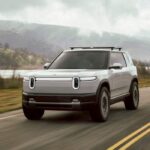When considering purchasing a new vehicle, cost is invariably a significant factor. For those eyeing luxury and off-road capabilities, the choice often narrows down to brands like Mercedes-Benz and Jeep. Both are renowned for their distinct qualities, but understanding the “Benz Jeep Cost” difference is crucial for making an informed decision. This article delves into a comprehensive cost comparison between these two automotive giants, exploring various aspects that contribute to the overall price tag.
Factors Influencing Mercedes-Benz Cost
Mercedes-Benz, a symbol of German engineering and luxury, commands a premium price due to several key factors:
Brand Prestige and Luxury Features
Mercedes-Benz vehicles are synonymous with luxury. The brand invests heavily in creating a premium experience, from meticulously crafted interiors with high-end materials to advanced technology and sophisticated designs. This emphasis on luxury inherently increases the “benz cost”. You’re not just paying for a car; you’re investing in a status symbol and a superior level of comfort and refinement.
Advanced Technology and Engineering
Innovation is at the heart of Mercedes-Benz. They consistently push technological boundaries, integrating cutting-edge features into their vehicles. This includes advanced driver-assistance systems, state-of-the-art infotainment, and powertrains designed for both performance and efficiency. Research and development in these areas contribute to the higher “benz jeep cost” differential when compared to some other brands.
Maintenance and Repair Costs
Generally, maintaining a luxury vehicle like a Mercedes-Benz tends to be more expensive than a mainstream brand. Parts can be pricier, and specialized servicing might require trained technicians and specific diagnostic equipment, further impacting the long-term “benz cost” of ownership.
Factors Influencing Jeep Cost
Jeep, an American icon, focuses on ruggedness, off-road prowess, and a spirit of adventure. The “jeep cost” structure is influenced by:
Brand Heritage and Off-Road Capability
Jeep’s reputation is built on its legendary off-road capabilities and adventurous heritage. Models like the Wrangler and Gladiator are engineered for challenging terrains, featuring robust 4×4 systems, high ground clearance, and durable components. This off-road focus contributes to the engineering and manufacturing costs, influencing the “jeep cost”.
More Accessible Price Points (Generally)
While Jeep also offers premium models, their range generally starts at a more accessible price point compared to Mercedes-Benz. Jeep caters to a broader audience, including those seeking capable and versatile vehicles without the ultra-luxury focus of Mercedes-Benz. This contributes to a potentially lower initial “jeep cost”.
Maintenance and Repair Costs
Jeep vehicles, while rugged, can also have specific maintenance needs, particularly for those who frequently engage in off-road driving. However, compared to luxury brands, parts and general maintenance for Jeeps might be more readily available and potentially less expensive, affecting the overall “jeep cost” of ownership.
Direct Cost Comparison: Mercedes-Benz vs. Jeep Models
A direct “benz jeep cost” comparison necessitates looking at specific models within similar vehicle categories. For instance, comparing a Mercedes-Benz GLC SUV to a Jeep Grand Cherokee provides insights into the pricing differences in the mid-size SUV segment. Generally, the Mercedes-Benz equivalent will likely have a higher starting MSRP due to the factors mentioned earlier (luxury, technology).
However, Jeep also offers higher-end models like the Grand Wagoneer, which can compete in price with some Mercedes-Benz SUVs, especially when fully equipped. The “benz jeep cost” gap can narrow depending on the specific models, trims, and optional features selected.
Long-Term Cost of Ownership
Beyond the initial purchase price, the long-term “benz jeep cost” involves factors like:
Depreciation
Luxury vehicles like Mercedes-Benz can sometimes depreciate faster in the initial years compared to more mainstream brands. Jeep’s depreciation rates can vary depending on the model, with some models like the Wrangler holding their value relatively well due to their iconic status and off-road demand.
Fuel/Energy Efficiency
Fuel economy is a significant ongoing cost. Mercedes-Benz offers a range of fuel-efficient gasoline engines and an expanding lineup of electric vehicles (EQ models). Jeep’s fuel efficiency varies across its models, with some off-road focused models being less fuel-efficient, while newer models and hybrid options are improving in this area. The choice between gasoline, diesel, hybrid, or electric powertrains within both brands will impact the long-term fuel or energy “benz jeep cost”.
Insurance
Insurance costs are influenced by vehicle value, repair costs, and safety ratings. Mercedes-Benz vehicles, being generally more expensive and potentially pricier to repair, might incur higher insurance premiums compared to some Jeep models, affecting the overall “benz jeep cost”.
Conclusion
Deciding between Mercedes-Benz and Jeep involves carefully evaluating your priorities and budget. The “benz jeep cost” comparison reveals that Mercedes-Benz generally commands a higher price due to its emphasis on luxury, advanced technology, and brand prestige. Jeep offers a broader range of price points, focusing on ruggedness, off-road capability, and a more accessible entry into vehicle ownership.
Ultimately, the “best” choice depends on individual needs and preferences. If luxury, refinement, and cutting-edge technology are paramount, and budget allows, Mercedes-Benz is a compelling option. If off-road adventure, ruggedness, and a potentially more accessible price point are prioritized, Jeep presents a strong alternative. Thoroughly researching specific models, comparing features, and considering long-term ownership costs are essential steps in making an informed “benz jeep cost” decision.
